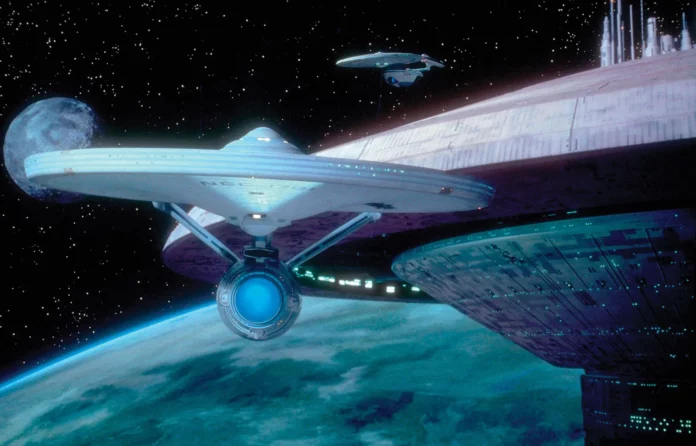Introduction:
Science fiction is a captivating genre that sparks the imagination and takes readers on extraordinary journeys through futuristic worlds and technological advancements. Rooted in speculative ideas and scientific plausibility, science fiction explores the possibilities of the future and delves into social, ethical, and philosophical issues. In this article, we will delve into the definition, characteristics, subgenres, influential authors and works, impact, cultural critique, and the enduring appeal of science fiction.
Characteristics of Science Fiction:
Science fiction is characterized by its speculative nature, future-oriented themes, imaginative and innovative concepts, exploration of social and ethical issues, and scientific plausibility. It pushes the boundaries of what is known and imagined, often combining scientific principles with imaginative storytelling. Science fiction encourages readers to ponder the potential consequences and implications of scientific advancements and societal changes.
Subgenres of Science Fiction:
Within the vast realm of science fiction, various subgenres offer unique perspectives and narratives. Hard science fiction focuses on scientific accuracy and explores the impact of scientific discoveries on society. Space opera emphasizes grand space adventures, epic battles, and interstellar civilizations. Cyberpunk delves into a dystopian future dominated by advanced technology and its societal consequences. Dystopian and post-apocalyptic fiction presents grim visions of a future society in crisis. Alternate history explores what could have happened if historical events unfolded differently. Time travel narratives play with the possibilities of journeying through time.
Influential Authors and Works in Science Fiction:
Throughout history, numerous authors have left their mark on the science fiction genre. Jules Verne’s “Twenty Thousand Leagues Under the Sea” introduced readers to underwater exploration and advanced technology. H.G. Wells’ “The Time Machine” popularized the concept of time travel. Isaac Asimov’s Foundation series delved into the vastness of space and the future of humanity. Philip K. Dick’s “Do Androids Dream of Electric Sheep?” explored the nature of artificial intelligence and humanity. Ursula K. Le Guin’s “The Left Hand of Darkness” examined gender and identity in a unique and thought-provoking manner.
Impact and Influence of Science Fiction:
Science fiction has had a profound impact on society and culture. It has often served as a source of inspiration for scientific advancements, with ideas from science fiction novels becoming reality. Moreover, science fiction reflects societal concerns, aspirations, and anxieties, providing a lens through which we can examine our own world. The genre’s influence extends to popular culture and entertainment, shaping films, television series, and video games. Science fiction acts as a bridge between science and humanities, fostering interdisciplinary thinking and stimulating the imagination of both scientists and artists.
Science Fiction in Film and Television:
Science fiction has found a natural home in the realms of film and television, captivating audiences with its visually stunning narratives. From early science fiction films like “Metropolis” to the golden age of science fiction cinema with classics such as “2001: A Space Odyssey” and “Blade Runner,” the genre has expanded its visual language and storytelling capabilities. Science fiction television series, such as “The Twilight Zone,” “Star Trek,” and “Black Mirror,” continue to captivate viewers with their exploration of futuristic themes and societal dilemmas. The evolution of visual effects technology has allowed filmmakers and creators to bring intricate science fiction concepts to life on the screen.
Science Fiction as a Literary Genre:
Science fiction has a rich history as a literary genre, attracting readers with its imaginative narratives and philosophical depth. It has gained recognition and numerous awards for its contribution to literature. Notable science fiction literary magazines, such as “Analog Science Fiction and Fact” and “Asimov’s Science Fiction,” have provided platforms for both established and emerging authors. Science fiction literature encompasses short stories and novels, exploring a wide range of themes, from alien encounters and technological advancements to social and political commentary. The genre often employs symbolic language and allegory to convey complex ideas and themes.
Science Fiction and Cultural Critique:
Science fiction serves as a powerful tool for cultural critique, offering a platform to examine contemporary issues through the lens of a speculative future. It enables authors to challenge societal norms, explore the consequences of technological progress, and address pressing social concerns. Science fiction has played a significant role in advocating for representation and diversity, offering alternative narratives that break free from conventional stereotypes. Feminism and gender roles have been prominent themes within the genre, sparking discussions and pushing the boundaries of traditional gender dynamics.
The Appeal of Science Fiction:
Science fiction’s enduring appeal lies in its ability to transport readers to imaginative worlds and evoke a sense of wonder and discovery. It provides an escape from reality while stimulating intellectual thought and speculative inquiry. Science fiction allows us to explore possible futures, contemplate ethical dilemmas, and grapple with existential questions. It sparks the imagination and encourages readers to envision a world beyond the confines of our current reality.
Conclusion:
Science fiction is a genre that captivates readers with its imaginative narratives, speculative ideas, and exploration of scientific and societal possibilities. Its characteristics, subgenres, influential authors and works, impact on society, cultural critique, and enduring appeal contribute to its significance and popularity. Science fiction continues to inspire, challenge, and entertain, offering a glimpse into the potential futures that await us while reflecting the hopes and concerns of our present world. As we journey through the realms of science fiction, we embark on a limitless exploration of the human imagination and the boundless possibilities of the universe.


